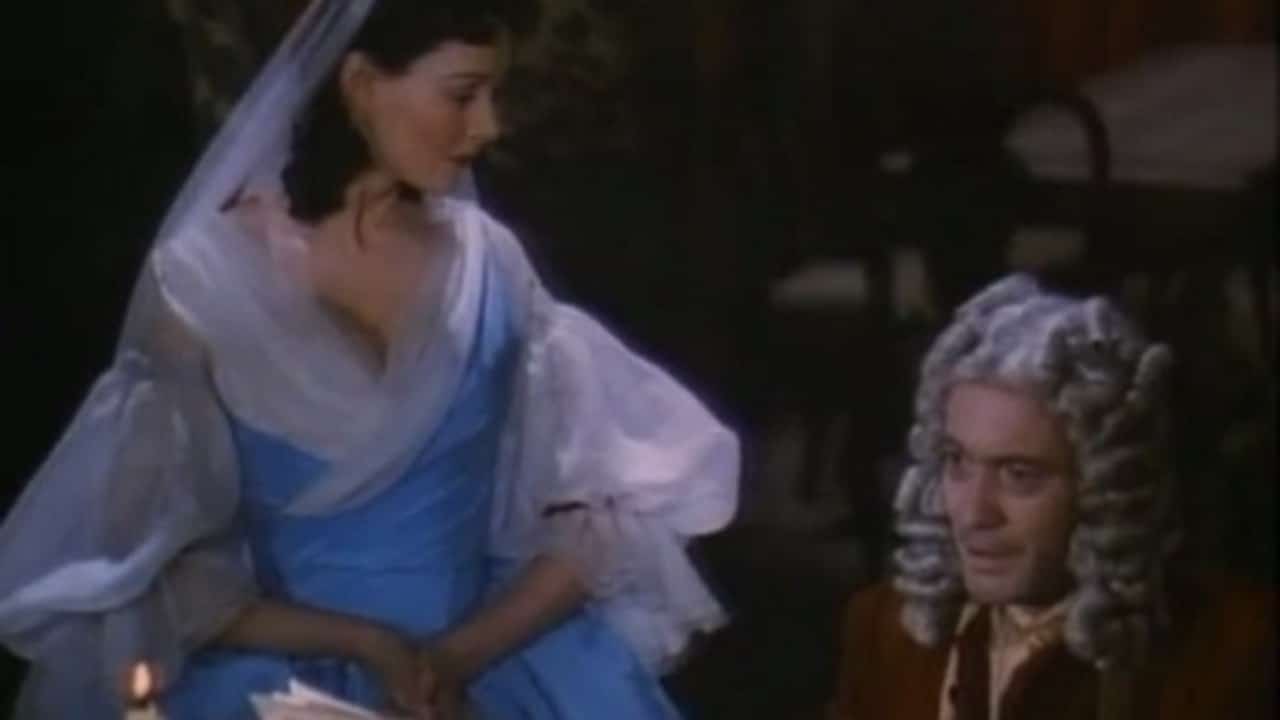




Dir: George Walker | Cast: Wilfrid Lawson, Elizabeth Allan, Malcolm Keen | UK Drama 89’
Goebbels was almost certainly aware of the strange anomaly that the first two Technicolor features made in wartime Britain while the war was at its lowest ebb both centred upon a German hero; although Handel promptly demonstrates his patriotic principles by declaring to a detractor that “While you are not English by any act of your own, I am English by choice”.
Resembling ‘Amadeus’ in its depiction of an unorthodox talent forced to abase himself before assorted pseuds and dilettantes; while the film betrays its origins as a radio play with its emphasis on talk – and the lack of obvious marquee value helped it to fail at the box office – Lord Rank at least had the good sense to cast an actor of the calibre of Wilfred Lawson rather than just a conventional leading man in the title role. So while two-thirds into the film Handel gets down on his knees to pray it at first seems ominous, despite Roger Manvell’s curt dismissal of “the sort of thing that disgraced ‘The Great Mr Handel'” and George Perry’s description of it as “so dull it has never been revived” Lawson’s performance combined with the imaginative use of colour (veteran colour cameraman Claude Friese-Greene was presumably enlisted for his experience with Dufaycolor, while his younger collaborator was a nascent Jack Cardiff) means it works.
The film is also to be cherished for the unique opportunity it provides to see the lovely young Elizabeth Allan in Technicolor; while Hay Petrie has one his best roles as Handel’s faithful servant Phineas, who in the final half-hour makes the film a virtual two-hander. @RichardChatten